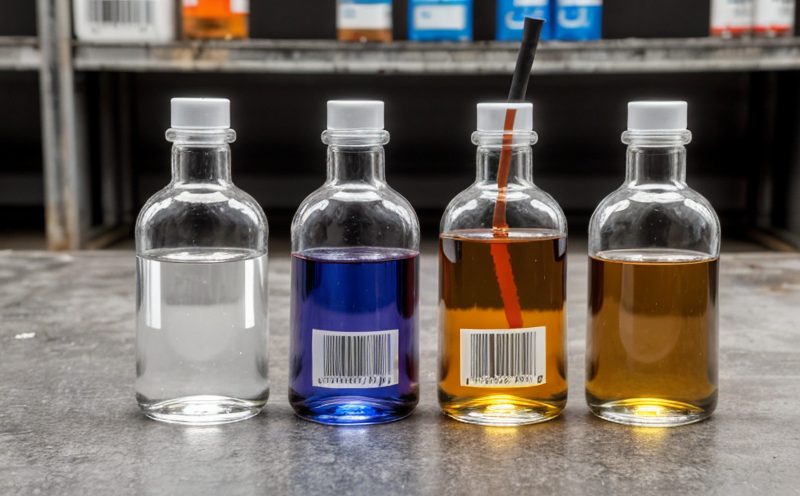JIS K7350 Stability Testing of Solar Cell Encapsulation Materials
The JIS K7350 stability test is a critical procedure used to evaluate the durability and longevity of encapsulation materials employed in solar cells. This test is especially important for ensuring that these materials can withstand environmental conditions, which are often harsh and unpredictable, over extended periods. The purpose of this testing aligns with the broader goal of enhancing the reliability and efficiency of photovoltaic systems, thereby supporting sustainable energy production.
The encapsulation material around solar cells acts as a barrier against moisture, oxygen, ultraviolet radiation, and other environmental factors that can degrade the cell's performance over time. By simulating real-world conditions in controlled laboratory settings, this test provides insights into how well these materials can protect the semiconductor devices within the solar panels.
This testing is not only crucial for manufacturers of photovoltaic components but also for end users who rely on high-quality, long-lasting encapsulation to ensure optimal energy production. The results from such tests are used by quality managers and compliance officers to assess whether a material meets industry standards and can be safely deployed in solar systems.
The JIS K7350 test protocol involves exposing the specimen to various environmental conditions that mimic real-world scenarios, including heat, humidity, and ultraviolet radiation. Specimens are typically subjected to these conditions over extended periods, ranging from days to months, depending on the specific requirements of the material being tested.
During this testing, it is essential to follow strict specimen preparation procedures to ensure accurate results. This includes precise measurement and cutting of samples to standard dimensions, ensuring uniformity across all test specimens. The prepared samples are then placed into a specially designed environmental chamber that can precisely control temperature, humidity, and light exposure.
Once the testing begins, real-time data is collected using high-precision instruments such as thermocouples for temperature monitoring, hygrometers for humidity measurement, and spectrophotometers to assess changes in material properties due to environmental stress. This continuous monitoring allows for a detailed understanding of how the encapsulation material responds under specific conditions.
The data collected during these tests are then analyzed using statistical methods to determine if there has been significant degradation or change in performance parameters over the test period. Acceptance criteria are strictly defined within JIS K7350, ensuring that only materials meeting these stringent standards can pass the test and be considered suitable for use in solar cells.
Understanding the significance of this testing process is crucial for both R&D engineers and procurement officers who must ensure that new materials meet or exceed industry benchmarks. By leveraging JIS K7350 stability testing, manufacturers can improve their products' longevity and reliability, which is essential for maintaining performance in diverse environmental conditions.
Applied Standards
| Standard | Description |
|---|---|
| JIS K7350 | Japanese Industrial Standard for the stability testing of solar cell encapsulation materials. This standard defines procedures and criteria to evaluate the resistance of encapsulation materials to environmental factors such as heat, humidity, ultraviolet light, and aging. |
Industry Applications
The JIS K7350 stability test is widely used in the photovoltaic industry to ensure that encapsulation materials meet stringent quality control standards. This testing process plays a vital role in the development and certification of solar cell components, guaranteeing their reliability under various environmental conditions.
Manufacturers use this data to optimize material formulations, improve performance, and enhance durability. By adhering to JIS K7350 guidelines, companies can ensure that their encapsulation materials are capable of withstanding the rigors of real-world applications, thereby increasing the overall efficiency and longevity of solar energy systems.
The results from these tests also help in compliance verification for regulatory bodies and certification agencies. This ensures that products meet international standards and can be trusted to perform reliably over extended periods. For R&D teams, this data provides valuable insights into material behavior under stress, aiding in the design of more robust and efficient solar cell encapsulation.
Customer Impact and Satisfaction
- Increased reliability and longevity of photovoltaic components
- Enhanced performance under diverse environmental conditions
- Improved durability, leading to reduced maintenance costs
- Better compliance with international standards and regulations
- Increased trust in the quality of encapsulation materials used in solar cells





